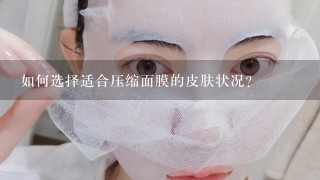如何选择适合压缩面膜的皮肤状况?

选择适合压缩面膜的皮肤状况需要考虑以下因素:
-
皮肤类型:
- 敏感皮肤:选择无刺激性、温和的配方。
- 干 skin:选择保湿、滋养性的配方。
- acne prone skin:选择抗菌、抗红润配方。
- 混合皮肤:选择适合多种皮肤类型的配方。
-
皮肤状况:
- acne:选择抗菌、抗红润配方。
- 敏感:选择无刺激性、温和的配方。
- 疲倦:选择保湿、滋养性的配方。
- 疲倦:选择抗氧化剂、抗干护配方。
- 粗糙:选择抗皱、提升皮肤弹性的配方。
- 细纹:选择细颗粒、轻质的配方。
以下是一些常见皮肤状况的推荐配方:
- **敏感皮肤:**洁净无刺激性面膜,如 Cetaphil Gentle Facial Cleanser 或 CeraVe Moisturizing Cream.
- **干 skin:**保湿滋养面膜,如 CeraVe Moisturizing Cream,Cetaphil Moisturizing Lotion,或 Laneige Hyaluronic Acid Sleeping Mask.
- ** acne prone skin:**抗菌抗红润面膜,如 The Ordinary Glycolic Acid 7% + B5 Serum,Paula's Choice Clear Skin Complex,或 CeraVe Acne Moisturizing Cream.
- **混合皮肤:**适合多种皮肤类型的混合面膜,如 CeraVe Moisturizing Cream,Cetaphil Gentle Cleanser,或 La Roche-Posay Effaclar Duo.
- **疲倦:**保湿滋养面膜,如 CeraVe Moisturizing Cream,La Roche-Posay Effaclar Duo,或 Laneige Hyaluronic Acid Sleeping Mask.
- **粗糙:**抗皱提升面膜,如 The Ordinary Granactive Retinol 0.3% + B5 Serum,Paula's Choice Resurfacing Resurfacing Mask,或 CeraVe Moisturizing Cream.
- **细纹:**细颗粒轻质的面膜,如 CeraVe Moisturizing Cream,Cetaphil Gentle Cleanser,或 La Roche-Posay Effaclar Duo.
建议:
- 选择与您的皮肤状况匹配的配方。
- 使用清洁的容器,避免使用刺激性或过多的涂抹。
- 定期测试新配方,以确保不会引起过敏反应。
- 保持面膜干燥,不要过度涂抹。





































































